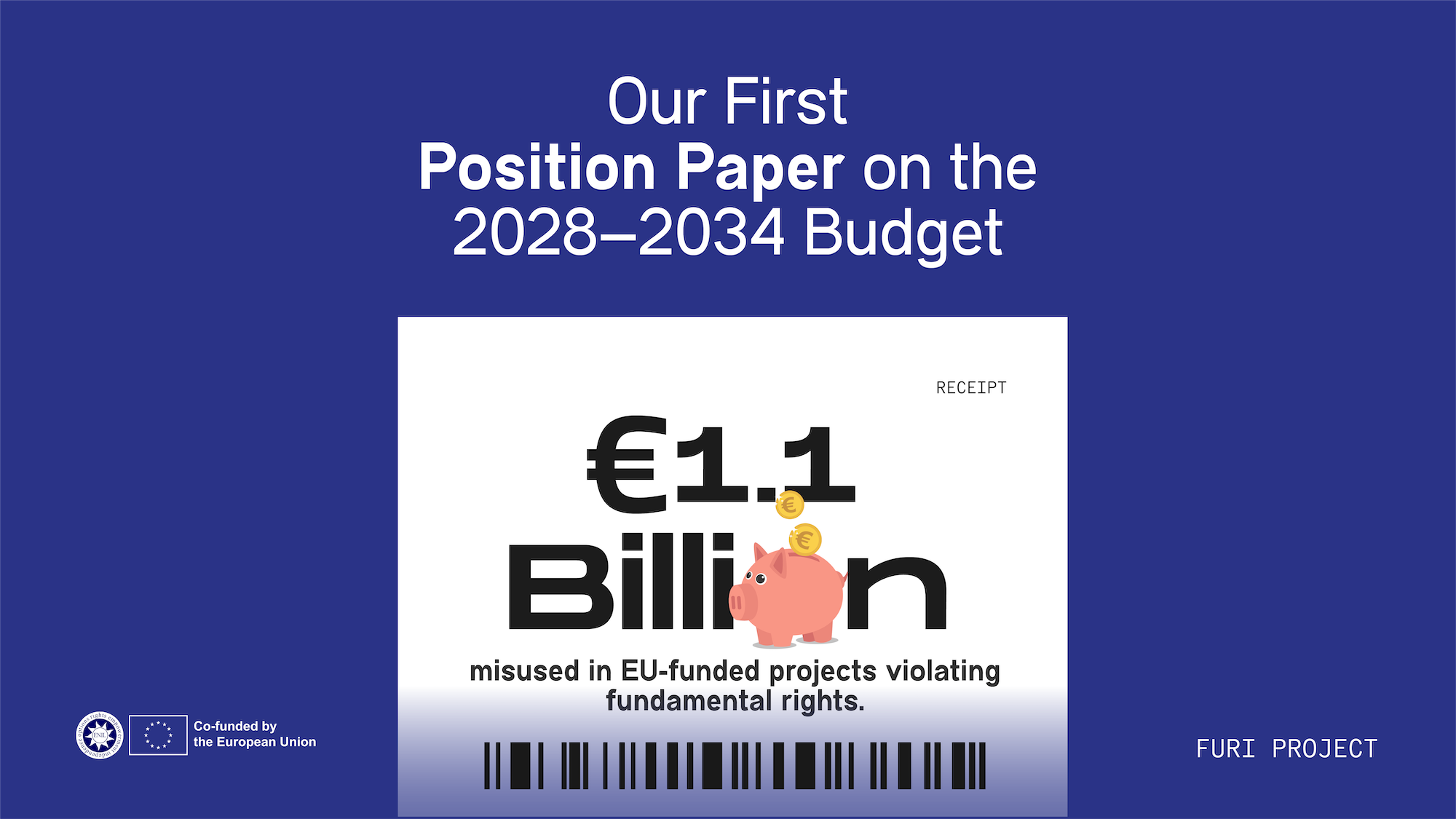ENIL achieved a major success in its advocacy campaign in defence of the right to legal capacity. At the beginning of July the Committee on Legal Affairs of the European Parliament (JURI-Committee) published its final report on the regulation on the protection of vulnerable adults. The Members of the European Parliament took substantial parts of our input on board.
The European Union is working on this regulation, to implement the 2000 Hague Convention which is also titled “on the protection of vulnerable adults”. The objective of this Hague Convention is to create automatic procedures in situations where adults who are presumed to be incapable of taking care of their own interests find themselves in a cross-border situation.
The approach of the Hague Convention to a situation where a disabled or older person finds itself in a different country, is to impose measures designed to decide what is in the persons best interest. These measures include:
“a) the determination of incapacity and the institution of a protective regime;
b) the placing of the adult under the protection of a judicial or administrative authority;
c) guardianship, curatorship and analogous institutions;
d) the designation and functions of any person or body having charge of the adult’s person or property, representing or assisting the adult;
e) the placement of the adult in an establishment or other place where protection can be provided;
f) the administration, conservation or disposal of the adult’s property;
g) the authorisation of a specific intervention for the protection of the person or property of the adult.”
Article 12 of the UN CRPD grants all persons with disabilities equal legal capacity and obliges member states to replace all forms of deprivation of legal capacity with forms of supported decision-making. This was confirmed by General Comment No. 1.
Article 14 of the UN CRPD grants the right to freedom from (forced) institutionalisation. Article 19 grants the right to Independent Living, to choose once place of residence outside institutions.
The measures proposed in the 2000 Hague Convention on the protection of adults and the regulation contradict the Convention. Since the UN CRPD was adopted in 2006 and ratified by the EU in 2011, it has been superseded the Hague Convention.
Needless to say that in practice measures such as guardianship have very negative effects, since they completely take away all choice and control. The measures proposed in the Hague Convention can lead to forced institutionalisation which is a major restriction of personal freedoms and as confirmed in the case of Belgium, reduces life expectancy.
ENIL immediately recognised the need to act. Three possible objectives were formulated: 1. to prevent the 2000 Hague Convention from being implemented in the EU, 2. To change the approach of the EU regulation, 3. To minimise the damage that this legislation could do.
Objective one was considered the ideal outcome but also seen as the most difficult to achieve. For our advocacy campaign it was decided to focus on objectives two and three.
ENIL started developing its position in the recommendations to the Belgian presidency of the EU Council in the first half of 2024. In addition, a first set of amendments was published. In our documents we asked for a complete change in the approach taken. Instead of facilitating the cross-border cooperation on substituted decision-making we began asking to make the regulation on the protection of adults into legislation about cross-border coordination in supported decision-making.
Two meetings with the then Belgian Council Presidency took place. To improve cooperation with more national government and to make use of the nationality of the ENIL Policy Coordinator, also the German government was contacted which resulted in a meeting.
Both governments showed themselves to be unwilling to effectuate significant changes but the German government pointed out another important challenge contained in the proposed regulation, the introduction of protection registers: “protection register’ means a register where measures directed to the protection of an adult or confirmed powers of representation have been registered.”
After an update of our workplan, ENIL renewed its efforts in advocating for a change in approach in 2025. In February, we adopted a joint position paper and amendments in cooperation with the European Council of Autistic People. Because the protection registers would mean that any measure such as guardianship or institutionalisation taken against any disabled person would be available to any authority in the EU, we asked for the complete removal of the same.
ENIL reinforced dissemination efforts and met with the team of European Parliament Rapporteur Yana Tom, shadow-rapporteur Krzysztof Smiszek and the Polish Presidency of the EU Council.
Campaigning alone, would mean that our potential to make an impact would be limited. Already in 2024, ENIL started to coordinate with the European Disability Forum. In early 2025, we managed to reach an agreement on joint amendments, also involving Inclusion Europe, Mental Health Europe, Age Platform and the European Council of Autistic People.
We sent our amendments to people in charge of the file within the European Commission, to all members of the Committee on Legal Affairs in the European Parliament and many national governments.
To change the approach of the regulation our joint a amendments are for example proposing:
Article 2 on the scope
| Original text | Amendments |
| “this regulation shall apply in civil matter to the protection in cross-border situations of adults who, by reason of an impairment or insufficiency of their personal faculties are not in a position to protect their interests” | . This Regulation shall apply in civil matters to the protection in cross-border situations of adults |
| (a) the determination of the incapacity of an adult and the institution of a protective regime; | |
| (b) the placing of the adult under the protection of a judicial or administrative authority; | b) the placing of the adult under the protection of a judicial or administrative authority Powers of representation granted by an adult to be exercised when that adult is not in the position to protect his or her interests; |
| (c) guardianship, curatorship and analogous institutions; | |
| (d) the designation and functions of any person or body having charge of the adult’s person or property, representing, or assisting the adult; | |
| (e) decisions concerning the placement of the adult in an establishment or other place where protection can be provided; |
Article 3 on definitions
| Original text | Amendments |
| (12) ‘protection register’ means a register where measures directed to the protection of an adult or confirmed powers of representation have been registered. | (12) ‘protection register’ means a register where measures directed to the protection of an adult or confirmed powers of representation have been registered. Cooperation and data sharing. If a decision-maker wishes to have their decision-making support decision or power of representation transferred to an authority in another Member State, the competent authority in charge may contact the authority in the country of origin to request information, if explicitly authorised by the decision-maker. This authorisation can be withdrawn at any point in time. |
How did the report of the JURI Committee accommodate our input?
When it comes to article 2 paragraph 1 the insufficiency assumption was not removed but the option of support added:
This Regulation shall apply in civil matters to the protection in cross-border situations of adults who, by reason of an impairment or insufficiency of their personal faculties, are not in a position to protect their interests or require support and safeguards in the exercise of their legal capacity on a temporary or permanent basis
When it comes to paragraph a, the assumption that an adult might be incapable to act on their own behalf was retained but important additions were made:
“determining the extent to which an adult is able to act on their own behalf and the institution of a protective regime;”
“(aa) measures to provide access by adults to the support they may require in exercising their legal capacity;”
“(ab) powers of representation granted by adults for their support or representation, to be exercised when those adults require support in protecting their interests;”
Due to these additions, the assumptions of incapacity which remain in the text, lose their substance.
The change of approach from substituted to supported-decision making becomes clear in paragraph d:
“the designation and functions of any person or body providing support in decision making to an adult with regard to property, or other forms of assistance”
These are the solutions proposed for paragraph b and c:
| (b) the placing of the adult under the protection of a judicial or administrative authority; | |
| (c) guardianship, curatorship and analogous institutions; |
The report also proposes to delete the protection registers:
| Original text | Amendments |
| (12) ‘protection register’ means a register where measures directed to the protection of an adult or confirmed powers of representation have been registered. | |
When it comes to the protection registers, the MEPs are going beyond our proposal and propose a complete removal.
This result is good news because the EU Council accepted our input in the first part of its Partial General Approach only to a very limited extent. The European Parliament and the EU Council will now have to negotiate a joint text for the regulation and agree on a compromise. We can thus already say for certain that large parts of the JURI report will end up in the final regulation. ENIL has had a substantial impact on an important regulation and successfully defended the right to legal capacity. We will keep working on the file and do our best to raise the bar further.
Once some of our proposals are included in the final text, there will be for the first time cross-border coordination on supported decision-making. It would become possible for persons using this service, to have their support system recognised when moving to another country.



